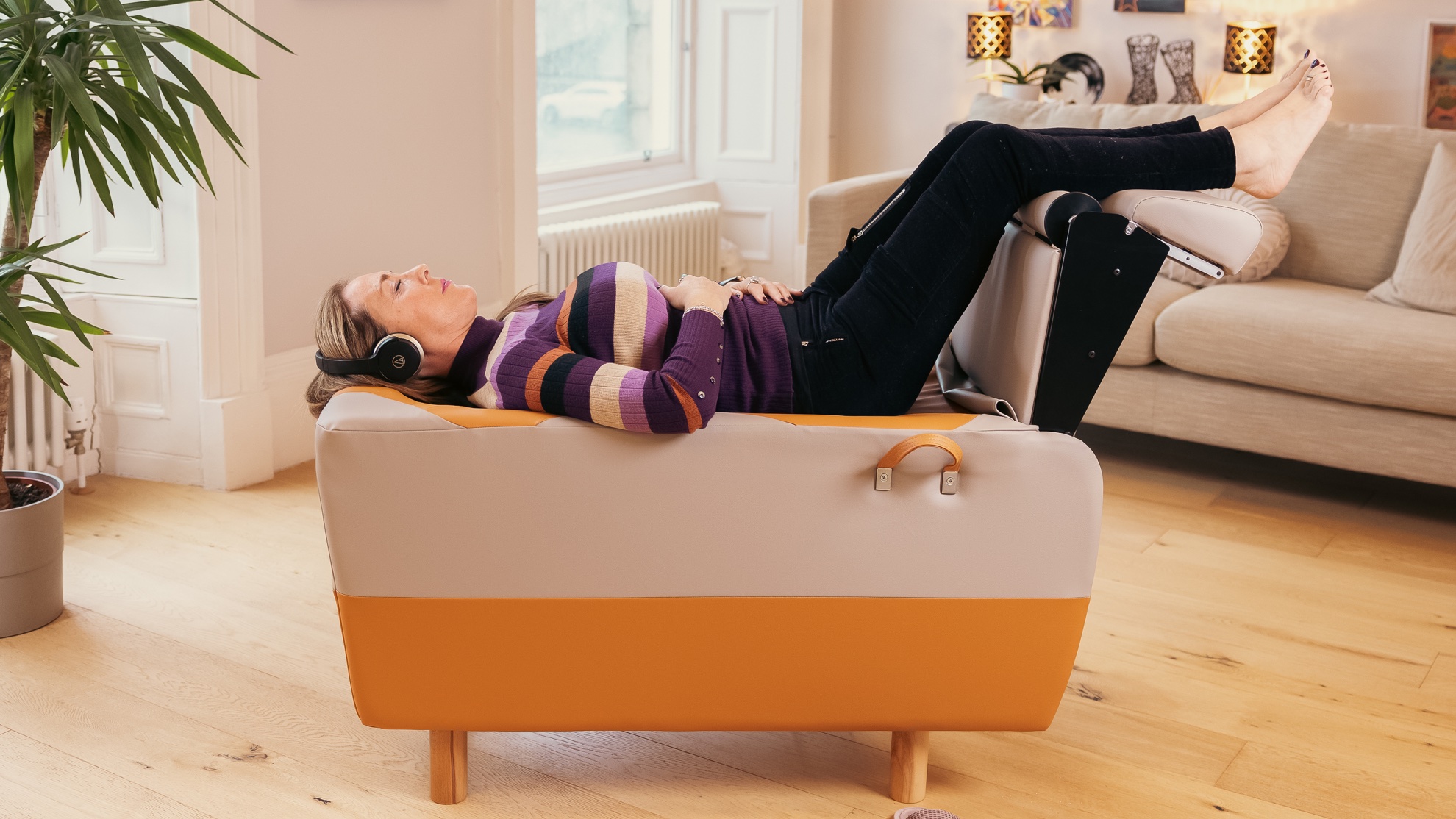Could this robot make your back better?
The BackHug doesn't come cheap, but it has 26 robot fingers to push you in places you didn't know you had places


If you've ever suffered from back and joint pain I'm sure that you've reached a point where you'd do pretty much anything if it made the pain go away. So while the BackHug device isn't cheap – it's £89 per month for individuals – I know when I was experiencing chronic back pain myself I'd have been willing to pay that much for some robot pain relief.
The British-made BackHug claims to be the UK's first robot back therapist, and it looks a bit like one of those things you used to jump over in primary school gymnastics. But it has more in common with the best massage chairs, although it delivers its massage in a much more precise, and its creators say more effective, way.
The BackHug is an app-controlled device that scans the shape of your back and uses nearly 30 independently controlled robotic fingers to deliver a deep tissue pressure massage to your neck, your upper and lower back and your shoulder blades. In an interesting touch the app also tells you how much tension it detected in your back before and after your session.
Could a programmed massage really help your back pain?
That's a good question, and it's one we previously asked a back specialist: osteopath Paige Kern. As Kern told us, personalisation is really the key here: there's no such thing as a one-size-fits-all massage that'll make anyone feel better, so in principle at least the BackHug's scanning-based system may well do a better job than a standard massage chair. The fact that it prods rather than rolls like a typical chair is a big plus too.
As a former chronic pain sufferer I'm very wary of anything that promises to help with chronic conditions: there are lots of snake oil salesmen out there happy to sell you things that don't work or that might actually make you worse, usually with exciting but highly unlikely claims. So when I saw the BackHug site say – with a lot of caveats – that it can help with the symptoms of MS my woo detector started to beep. But for some people with MS massage is known to help with relaxation and mood, so it's not as outlandish a claim as it might seem at first. And the firm offers a no-fuss 30-day returns policy, which makes me a lot less cynical.
It's important to note that this device shouldn't be viewed as an alternative to medical treatment. No amount of robot fingers would have saved my dodgy back from the surgery I needed to finally fix it. And if you're starting to feel the beginnings of back, neck or joint pain from your computer, phone or tablet you should interpret that as a warning from your body that you need to work on your posture and perhaps upgrade to one of the best office chairs too. Pain is a sign that something's wrong, and if you're at a desk all day your chair and the way you sit on it are often the prime suspects.
You can find out more about BackHug at mybackhug.com.
Get all the latest news, reviews, deals and buying guides on gorgeous tech, home and active products from the T3 experts
Writer, musician and broadcaster Carrie Marshall has been covering technology since 1998 and is particularly interested in how tech can help us live our best lives. Her CV is a who’s who of magazines, newspapers, websites and radio programmes ranging from T3, Techradar and MacFormat to the BBC, Sunday Post and People’s Friend. Carrie has written more than a dozen books, ghost-wrote two more and co-wrote seven more books and a Radio 2 documentary series; her memoir, Carrie Kills A Man, was shortlisted for the British Book Awards. When she’s not scribbling, Carrie is the singer in Glaswegian rock band Unquiet Mind (unquietmindmusic).
